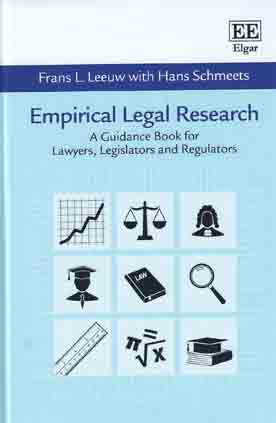
Empirical Legal Research describes how to investigate the roles of legislation, regulation, legal policies and other legal arrangements at play in society. It is invaluable as a guide to legal scholars, practitioners and students on how to do empirical legal research, covering history, methods, evidence, growth of knowledge and links with normativity.
This multidisciplinary approach combines insights and approaches from different social sciences, evaluation studies, Big Data analytics and empirically informed ethics. The authors present an overview of the roots of this blossoming interdisciplinary domain, going back to legal realism, the fields of law, economics and the social sciences, and also to civilology and evaluation studies.
The book addresses not only data analysis and statistics, but also how to formulate adequate research problems, to use (and test) different types of theories (explanatory and intervention theories) and to apply new forms of literature research to the field of law such as the systematic, rapid and realist reviews and synthesis studies.
The choice and architecture of research designs, the collection of data, including Big Data, and how to analyze and visualize data are also covered. The book discusses the tensions between the normative character of law and legal issues and the descriptive and causal character of empirical legal research, and suggests ways to help handle this seeming disconnect.
This comprehensive guide is vital reading for law practitioners as well as for students and researchers dealing with regulation, legislation and other legal arrangements.